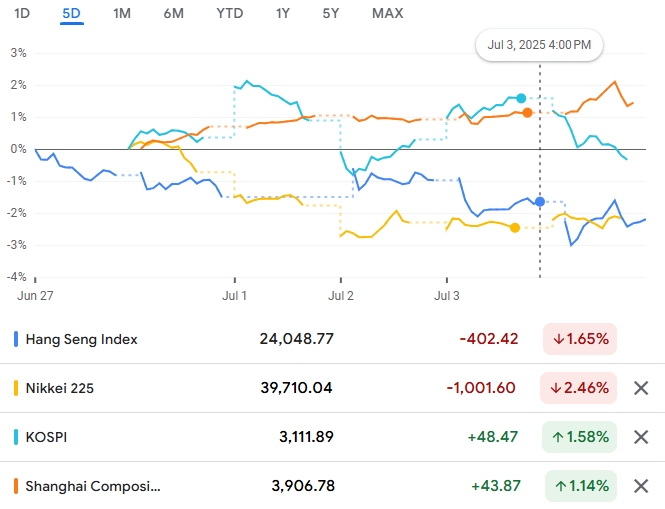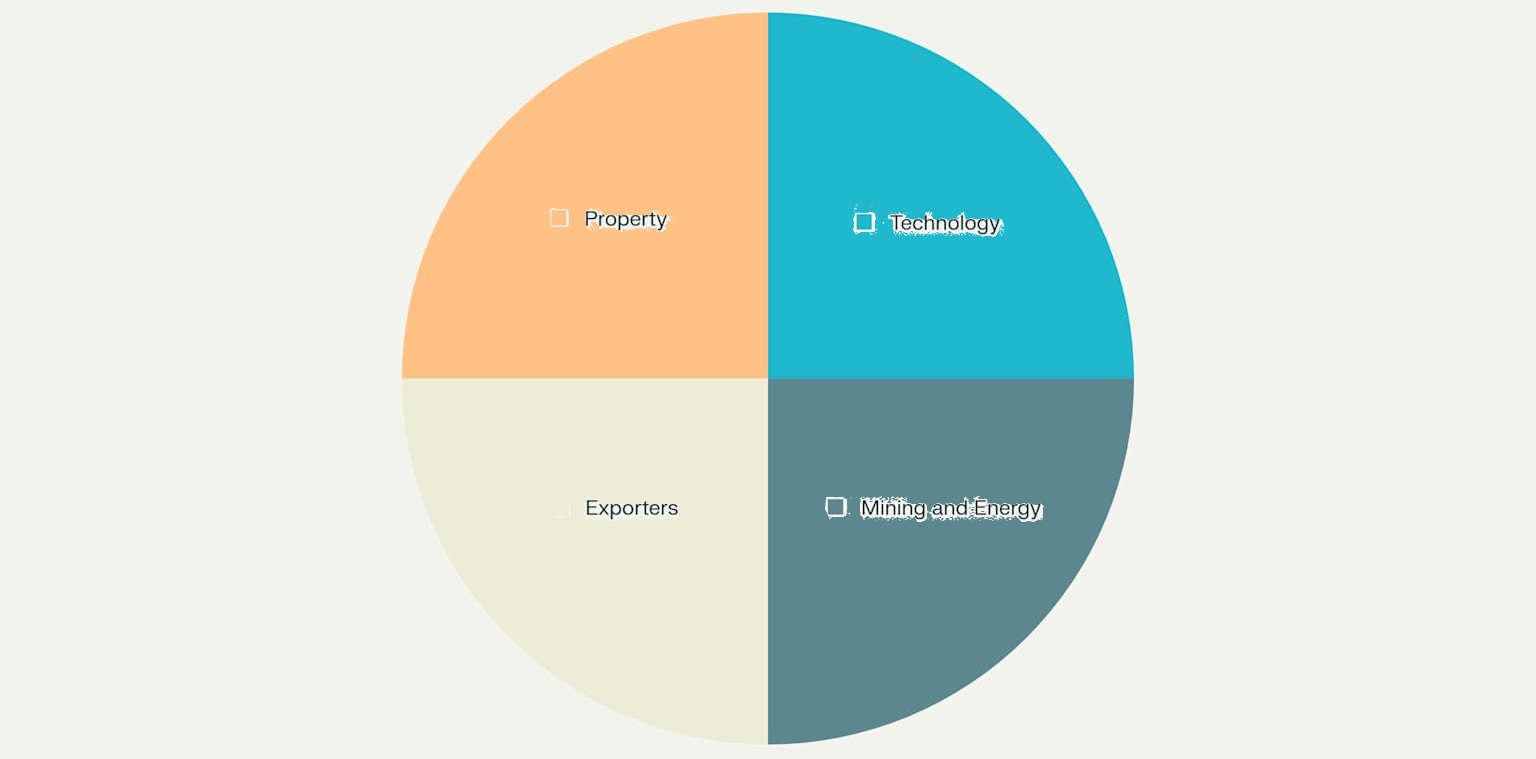Asian equity markets delivered a mixed performance on Friday, 4 July 2025, as investors weighed ongoing trade tensions, economic data releases, and shifting global sentiment.
The Hang Seng Index in Hong Kong led regional declines, while Japan's Nikkei 225 also posted a notable drop. Other major indices, including the Shanghai Composite and South Korea's KOSPI, reflected the cautious mood across the region.
Asian Markets Mixed: Hang Seng Falls, Nikkei Drops

Hang Seng Index Declines on Broad-Based Weakness
The Hang Seng Index fell 0.68%, losing 164.34 points to close at 24,048.77. The decline was broad-based, with technology, property, and financial stocks among the main laggards.
The index opened at 23,900.69 and traded in a range between 23,691.44 and 23,932.97 before settling just below the 24,100 mark. The drop marked the third consecutive session of losses for the Hang Seng, as investors remained cautious amid ongoing US-China trade negotiations and the looming US tariff deadline.
-
Hang Seng Index: -0.68% to 24,048.77
Key drivers: Tech and property stocks, trade uncertainty
Nikkei 225 Drops Amid Cautious Sentiment
Japan's Nikkei 225 declined 0.79%, falling 318.25 points to close at 39,710.04. The index faced pressure from a stronger yen and concerns about global trade policy, as well as domestic inflation data.
Japanese exporters underperformed, and the market's mood was further dampened by uncertainty ahead of the US Independence Day holiday and key US economic releases.
-
Nikkei 225: -0.79% to 39,710.04
Key drivers: Stronger yen, trade uncertainty, inflation concerns
Other Major Asian Indices
KOSPI (South Korea): Fell 1.99%, dropping 61.99 points to close at 3,111.89, as investors took profits after recent gains and watched developments in tariff talks with the United States.
Key Market Drivers
1. Trade Tensions and Tariff Uncertainty
The regional mood was shaped by the impending US tariff deadline on 9 July, with President Trump expected to announce new trade measures affecting multiple countries. Asian markets have been particularly sensitive to trade headlines, as any escalation could impact export-driven economies such as Japan, South Korea, and China.
2. Currency Movements
The Japanese yen strengthened, adding pressure on Japanese exporters and contributing to the Nikkei's decline. Meanwhile, the US dollar index remained near 3.5-year lows, supporting risk appetite in some Asian markets.
3. Economic Data and Policy
Sector Highlights

-
Technology: Tech stocks lagged in Hong Kong, weighed down by global tech sector volatility and trade policy risks.
-
Property: Hong Kong property developers declined as investors remained cautious about the outlook for the sector.
-
Exporters: Japanese exporters underperformed due to currency headwinds and trade policy risks.
Mining and Energy: Australian and Chinese mining shares benefited from higher commodity prices and robust demand for battery metals.
Outlook
Looking ahead, Asian markets are expected to remain volatile as investors monitor:
-
The outcome of US tariff negotiations and any new trade measures
-
Key US economic data releases, including payroll and inflation figures
-
Central bank policy signals in China, Japan, and South Korea
Corporate earnings and sector-specific developments
Conclusion
The mixed performance across Asia underscores the region's sensitivity to global policy shifts and economic data. While the Hang Seng's decline highlights ongoing caution, the broader market landscape reflects the complex environment facing investors as the second half of 2025 unfolds.
Disclaimer: This material is for general information purposes only and is not intended as (and should not be considered to be) financial, investment or other advice on which reliance should be placed. No opinion given in the material constitutes a recommendation by EBC or the author that any particular investment, security, transaction or investment strategy is suitable for any specific person.























